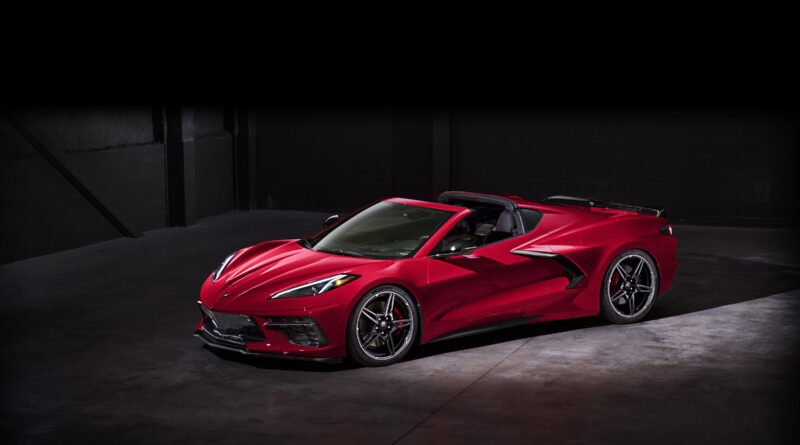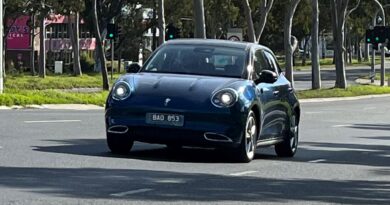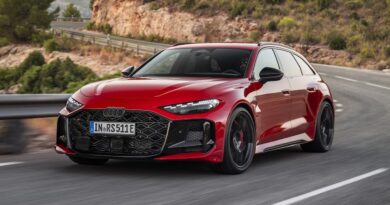Zora, E-Ray point to electric future for Chevrolet Corvette
An electric Chevrolet Corvette? It’s only a matter of time until the Chevrolet Corvette adopts electrification.
Rumours and spy pictures continue to emerge suggesting parent company General Motors is nearing the reveal of a long-anticipated hybrid version of its most famous sports car, the Chevrolet Corvette.
Currently there are at least two names in play for a plug-in hybrid version of America’s most famous sports car.
The first is Corvette E-Ray, which plays off the Corvette Stingray moniker for the existing V8-only car that arrives in Australia late in 2021. In 2015 GM trademarked the E-Ray name for some markets, including America.
Want the latest EV news and reviews delivered to your inbox? Subscribe to our weekly newsletter!
The second is Corvette Zora, which honours Zora Arkus-Duntov, an engineer known as the father of the Corvette.
Interestingly, GM has registered the Zora name in Australia shortly after it registered the Stingray name. However, it has not yet registered E-Ray in Australia.
Corvette Zora/E-Ray hybrid caught testing
Early this year spy pictures showing a camouflaged prototype of the Corvette caught in the open were published, refueling those E-Ray/Zora rumours.
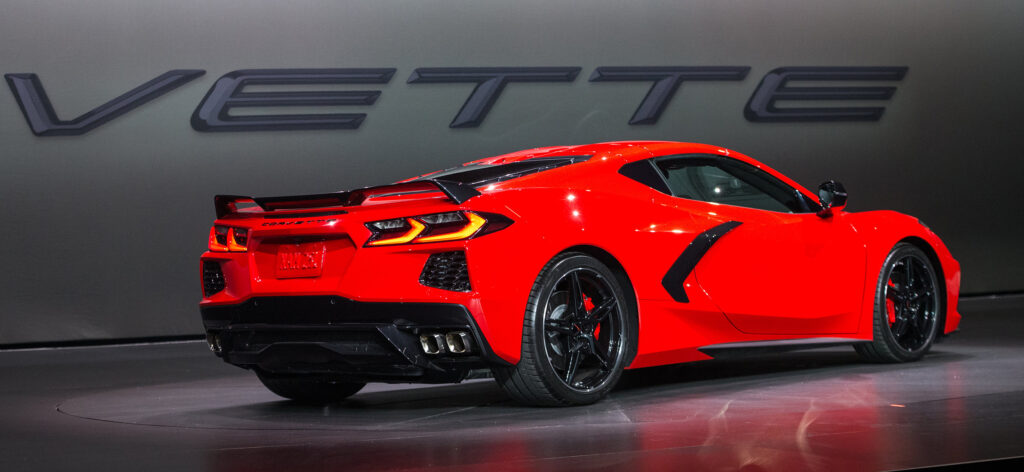
General Motors has been understandably quiet about an electrified Corvette, as it was for years as rumours swirled that the iconic Corvette would switch the location of its engine from the front of the car to the rear, something that happened when the Corvette C8 (the eighth generation Corvette) was revealed in 2019.
While there are exceptions to the rule, car makers generally hate talking about future models – especially with enthusiast-focused models such as the Corvette – because it can slow sales of the current model.
But there are many reasons an electrified Corvette is only matter of “when” not “if”.
All-electric vision for Chevrolet parent GM
For starters, look at the direction of General Motors, which is undergoing an electric transformation.
The struggling giant of the American car industry is working to shift its fortunes to electric vehicles.
That it is about to convert its biggest, baddest, butchest model – the Hummer – to an all-electric pickup truck and SUV is an indication of how radical the electric thinking is within the development halls of its Detroit head office.
And CEO Mary Barra has made it clear for years the company is heading towards an electric future.
“Our vision for the future is a world with zero crashes, zero emissions and zero congestion,” Barra said in delivering the electric-focused keynote address at the 2021 Consumer Electronics Show (CES).
“The key to unlock that vision is electrification.”
GM is investing billions in its own battery technology – called Ultium – and that other iconic brand, Cadillac, is fast switching to an electric portfolio, starting with the soon-to-arrive Lyriq. Cadillac is also planning a flagship uber luxury limousine called Celestiq.
Former Holden boss and GM president Mark Reuss has also previously confirmed that the architecture and platform underpinning the C8 Corvette Stingray is ready for electrification.
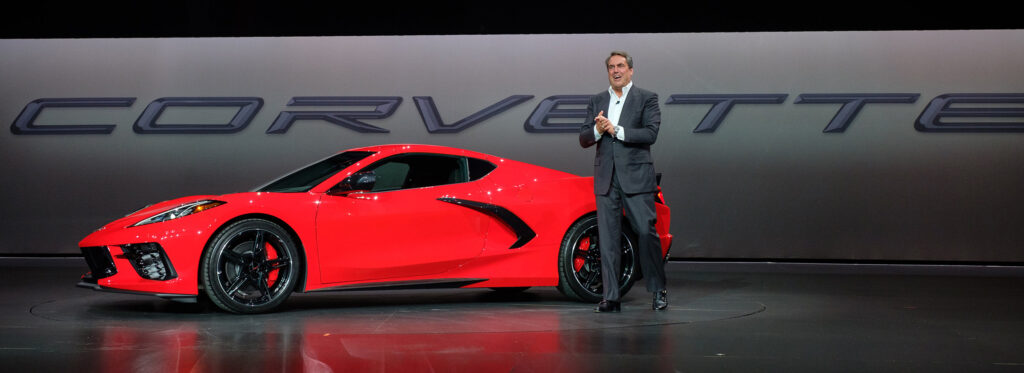
“All of the technology rolling into this vehicle is meant to support that [move to zero emissions],” said Reuss in 2019. “This platform can carry a lot of different things into the future for General Motors.”
The political situation in American could also encourage a shift to electrification.
While former President Donald Trump wasn’t too fussed about big issues such as the environment, his replacement Joe Biden has already indicated he will push a green agenda.
And during his presidential campaign in 2020, Biden – who owns a classic Corvette – was excited about the prospect of an electric Corvette.
“They tell me … they’re making an electric Corvette that can go 200 miles per hour. You think I’m kidding, I’m not kidding,” the now-President said last August.
If American politics aren’t enough, then the super-tough European emissions regulations also provide enough impetus for Chevrolet to think electric for the Corvette. Oh, and China doesn’t mind an EV either: the Chinese buy more electric cars than any other country.
Corvette electric: mid-engined, AWD
Whatever the name and whenever it appears, the formula for an electrified Corvette appears more obvious and is set to pair a V8 engine with electric motors.
The switch to a mid-engined setup – putting the engine behind the two occupants – makes packaging components much easier in the front of the car.
That’s part of the reason the C8 (the eighth generation Corvette) will be the first to roll off the production line with the steering wheel on the right; shifting steering and brake components from left to right did not have to be weaved around a gigantic V8 engine.
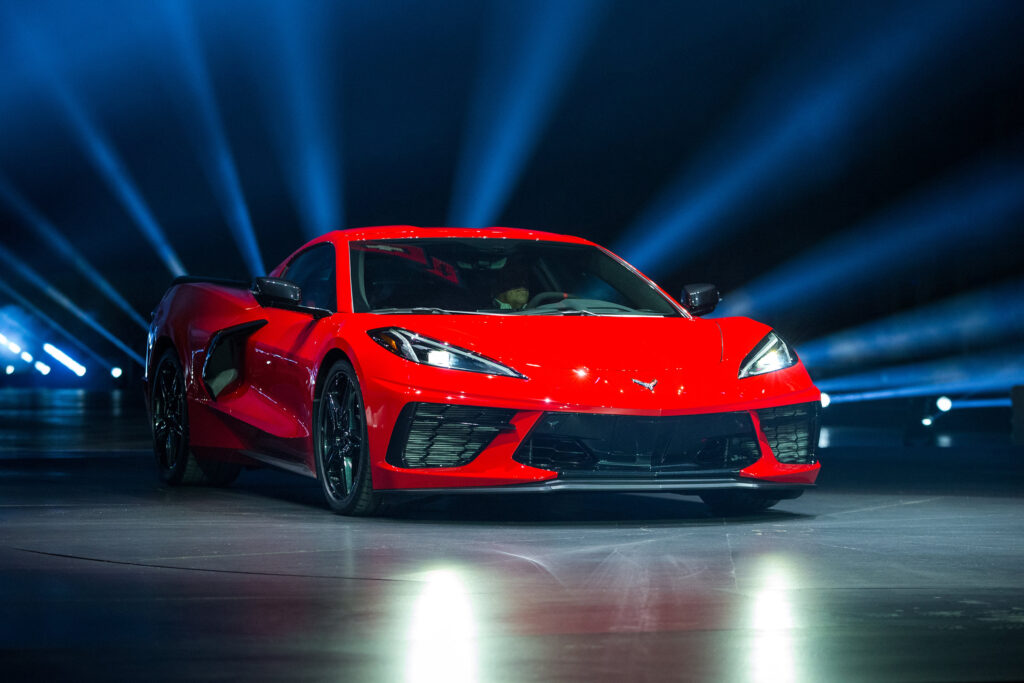
Having all that space up front (like many mid-engined sports cars it doubles as luggage space) makes it relatively easy to fit a pair of electric motors to drive the front wheels, allowing the partially-electric Corvette to drive on electricity alone for short distances.
That would be a similar setup to the Ferrari SF90 and BMW i8 and what we’re expecting from McLaren’s first PHEV, the upcoming Artura.
Of course, like most plug-in hybrid electric vehicles the power produced when running on electricity alone is a lot less than when the engine fires to life.
The Corvette’s reputation has been built on performance and a V8 has been a big part of that.
So expect an electric Corvette – E-Ray, Zora or whatever it ends up being called – to have plenty of V8 goodness to give it the Ferrari- and Porsche-matching performance buyers have come to expect.
Corvette full EV inevitable
Perhaps the more exciting piece of the future Corvette puzzle is when it drops a V8 engine altogether.
Again, it seems only a matter of time.
Go back to those comments from Mary Barra where she said the company would eventually be zero emissions.
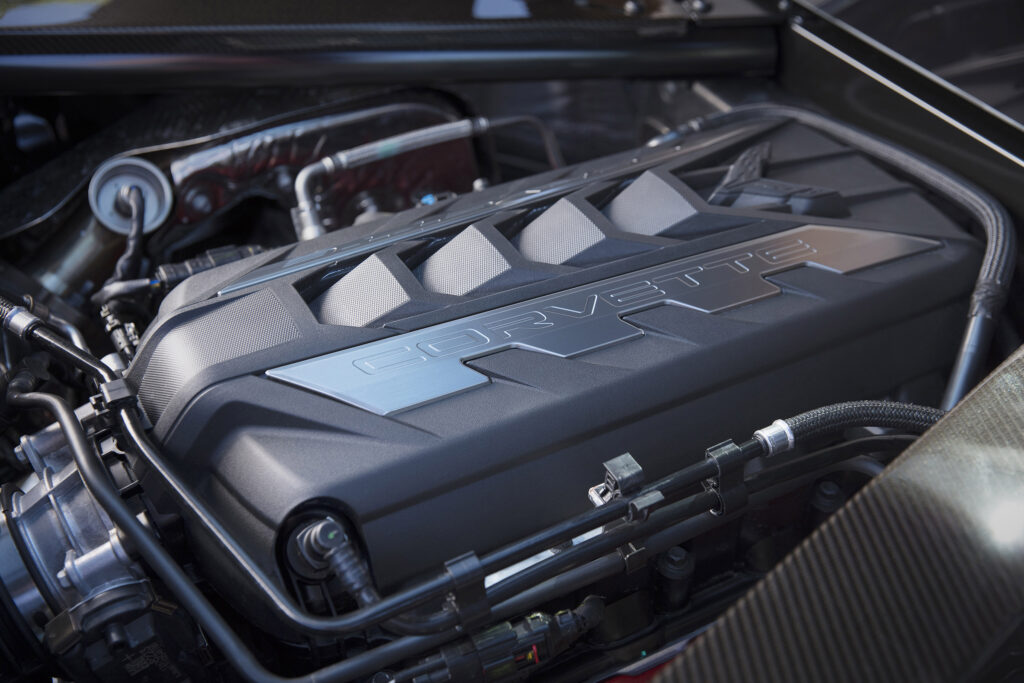
Hybrids don’t achieve that, BEVs do.
Lotus and low volume Croatian EV hypercar maker Rimac have demonstrated the sort of performance that can be gleaned from electric motors and it’s set to make things a lot more exciting than any V8, V10 or V12 engine.
A full electric Corvette seems inevitable, if many years away.
One challenge will be injecting the excitement, noise and drama into performance cars where that has previously been a big part of the appeal.
General Motors has already given hints of that in teaming up with Bose to add to the driving excitement for its Hummer EV.
Either way, expect the future of the Chevrolet Corvette to be very different – and a lot more electric – to its past.

